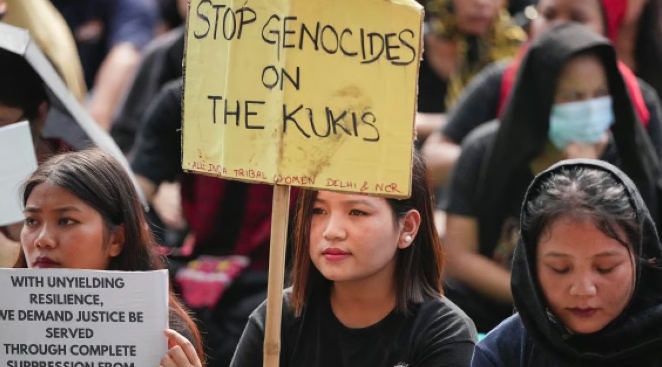Remembering Manipur (GS Paper 2, Polity)

Introduction:
- In a significant admission of accountability, Manipur Chief Minister N Biren Singh acknowledged his government's failure to contain the unrest that has plagued the state.
- This admission marks a crucial step forward in confronting the complex challenges facing Manipur.
Significance of Acceptance:
- The acceptance of responsibility is a pivotal moment, particularly in the aftermath of ethnic violence that claimed over 200 lives and displaced tens of thousands.
- Previously, blame was often shifted to external factors, overlooking internal complexities and contributing to further discord.
- With fresh outbreaks of violence, urgent action is imperative to initiate the much-needed healing process.
Beyond Ethnic Conflicts:
- Manipur's issues extend beyond ethnic conflicts, encompassing a range of socioeconomic challenges.
- The state's history, characterized by a diverse population and economic disparities, underscores the multifaceted nature of its problems.
- Inadequate infrastructure, limited opportunities, and resource allocation discrepancies fuel tensions and exacerbate grievances among various communities.
Erosion of Confidence and Political Ramifications:
- The erosion of public confidence, evident in the BJP's loss of both Lok Sabha seats in Manipur, underscores the pressing need for substantive action.
- The decline in vote share reflects growing disillusionment and underscores the urgency of addressing underlying issues.
- CM Singh's recognition of this erosion signals a readiness to confront realities and pursue meaningful solutions.
Proposed Solutions:
- Singh's proposed solution, emphasizing the distinction between original tribal inhabitants and later migrants, highlights the need for inclusive governance and targeted interventions.
- However, meaningful progress requires concerted efforts from both state and central authorities.
- Establishing a multi-ethnic peace committee is a positive step, but tangible outcomes remain elusive.
Moving Forward:
- The path forward demands proactive engagement and genuine commitment from all stakeholders.
- While the Centre's involvement is essential, local leadership must prioritize reconciliation and equitable development.
- Beyond rhetoric, concrete actions are needed to address root causes and foster inclusivity.
Conclusion:
- CM Biren Singh's acknowledgment of responsibility signifies a crucial turning point in Manipur's journey towards stability and prosperity. However, words must be backed by decisive action.
- Manipur's path to rehabilitation hinges on holistic governance, transcending identity politics in favor of equitable development and genuine reconciliation.
- It is imperative that leaders seize this opportunity to chart a new course for Manipur's future.


